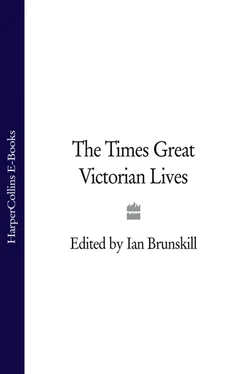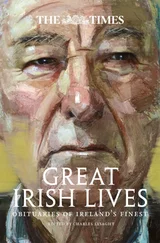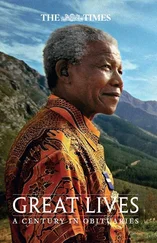DAVID LIVINGSTONE
Missionary and explorer: ‘Fallen in the cause of civilization and progress.’
1 MAY 1873
THE FOLLOWING TELEGRAM, dated Aden, the 27th inst., has been received at the Foreign Office from Her Majesty’s Acting Consul-General at Zanzibar:-
‘The report of Livingstone’s death is confirmed by letters received from Cameron, dated Unyanyembe, October 20. He died of dysentery after a fortnight’s illness, shortly after leaving Lake Bemba for eastward. He had attempted to cross the lake from the north, and failing in this had doubled back and rounded the lake, crossing the Chambize and the other rivers down from it; had then crossed the Luapuia, and died in Lobisa, after having crossed a marshy country with the water for three hours at a time above the waist; ten of his men had died, and the remainder, consisting of 79 men, were marching to Unyanyembe. They had disembowelled the body and had filled it with salt, and had put brandy into the mouth to preserve it. His servant Chumas went on ahead to procure provisions, as the party was destitute, and gave intelligence to Cameron, who expected the body in a few days. Cameron and his party had suffered greatly from fever and ophthalmia, but hoped to push on to Ujiji. Livingstone’s body may be expected at Zanzibar in February. Please telegraph orders as to disposal. No leaden shells procurable here.’
A plain Scottish missionary, and the son of poor parents, David Livingstone yet came of gentle extraction. The Livingstones have ever been reckoned one of the best and oldest of the Highland families. Considering that his father and himself were strong Protestants, it is singular that his grandfather fell at Culloden fighting in the Cause of the Stuarts. And that the family were Roman Catholics down to about a century ago, when (to use his own words) ‘they were made Protestants by the laird coming round their village with a man who carried a yellow staff’ to compel them, no doubt, to attend the established worship. More recently the Livingstones were settled in the little island of Ulva, on the coast of Argyleshire not far from the celebrated island of Iona, so well known in the annals of medieval missionary enterprise.
Dr. Livingstone’s father, one Neill Livingstone, who kept a small teadealer’s shop in the neighbourhood of Hamilton, in Lanarkshire, is represented by him, in
a biographical sketch prefixed to his volume of Travels, as having been too strictly honest and conscientious in his worldly dealings ever to become a rich and wealthy man. The family motto, we are told by one writer, was ‘Be honest.’ He was a ‘deacon’ in an independent chapel in Hamilton; and he died in the early part of the year 1855. His son was born at East Kilbride, in Lanarkshire, in or about the year 1816. His early youth was spent in employment as a ‘hand’ in the cotton-mills in the neighbourhood of Glasgow; and he tells us, in the book to which we have already referred, that during the winter he used to pursue his religious studies with a view to following the profession of a missionary in foreign parts, returning in the summer months to his daily labour in order to procure support during his months of renewed mental study.
While working at the Blantyre mills, young Livingstone was able to attend an evening school, where he imbibed an early taste for classical literature. By the time he was 16 years of age he had got by heart the best part of both Horace and Virgil. Here also he acquired a considerable taste for works on religion and on natural science; in fact, he ‘devoured’ every kind of reading, ‘except novels.’ Among the most favourite books of his boyhood and early manhood, he makes special mention of Dr. Dick’s Philosophy of Religion and Philosophy of a Future State. His religious feelings, however, warmed towards a missionary life; he felt an intense longing to become ‘a pioneer of Christianity in China,’ hoping that he might be instrumental in teaching the religion to the inhabitants of the Far East, and also that by so doing might ‘lead to the material benefit of some portions of that immense empire.’ In order to qualify himself for some such an enterprise he set himself to obtain a medical education, as a superstructure to that which he had already gained so laboriously; and this he supplemented by botanical and geological explorations in the neighbourhood of his home, and the study of Patrick’s work on the Plants of Lanarkshire.
We next find him, at the age of 19, attending the medical and Greek classes in Glasgow in the winter, and the divinity lectures of Dr. Wardlaw in the summer. His reading while at work in the factory was carried on by ‘placing his book on the spinning-jenny,’ so that he could ‘catch sentence after sentence while he went on with his labour,’ thus ‘keeping up a constant study undisturbed by the roar of machinery.’ Having completed his attendance on Dr. Wardlaw’s lectures, and having been admitted a Licentiate of the Faculty of Physicians and Surgeons, he resolved in 1838 to offer his services to the London Missionary Society as a candidate for the ministry in foreign parts. This step he was induced to take, to use his own words, on account of the ‘unsectarian character of that society, which sends out neither Episcopacy nor Presbyterianism, but the Gospel of God, to the heathen.’ In this ‘unsectarian’ movement he saw, or thought he saw, realized his ideal of the missionary life as it ought to be. The opium war, which then was raging, combined with other circumstances to divert his thoughts from China to Africa; and from the published accounts of the missionary labours of Messrs. Moffat, Hamilton, and other philanthropists in that quarter of the globe, he saw that an extensive and hopeful field of enterprise lay open before him.
His offer was accepted by the society, and having spent three months in theological study in England, and having been ordained to the pastoral office, he left these shores in 1840 for Southern Africa, and after a voyage of nearly three months reached Cape-Town. His first destination was Port Natal, where he became personally acquainted with his fellow countryman, the still surviving Rev. Robert Moffat, whose daughter subsequently became his wife and the faithful and zealous sharer of his toils and travels, and accompanied him in his arduous journey to Lake Ngami.
From Natal he proceeded inland to a mission station in the Bechuana country, called Kuruman, about 700 miles distant from Cape-Town, where, and at Mahotsa, he was employed in preparatory labours, joined with other missionaries down to about the year 1845. From that date for about four years more he continued to work at Chenuane, Lepelole, and Ko’obeng, aided and supported by no larger staff than Mrs. Livingstone and three native teachers. It was not until 1849 that he made his first essay as an explorer, strictly so called, as distinct from a missionary; in that year he made his first journey in search of Lake Ngami. In 1852 he commenced, in company with his wife, the ‘great journey,’ as he calls it, to Lake Ngami, of which a full and detailed account is given in the work already quoted above, and which he dedicated on its publication to Sir Roderick Murchison, as ‘a token of gratitude for the kind interest he has always taken in the author’s pursuits and welfare.’ The outline of this ‘greatjourney’ is so familiar to all readers of modernbooks of travel and enterprise that we need not repeat it here. It is enough to say that in the ten years previous to 1855 Livingstone led several independent expeditions, into the interior of Southern Africa, during which he made himself acquainted with the languages, habits, and religious notions of several savage tribes that were previously unknown to Englishmen, and twice crossed the entire African continent, a little south of the tropic of Capricorn, from the shores of the Indian Ocean to those of the Atlantic.
Читать дальше












